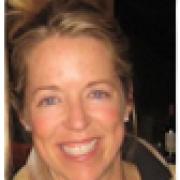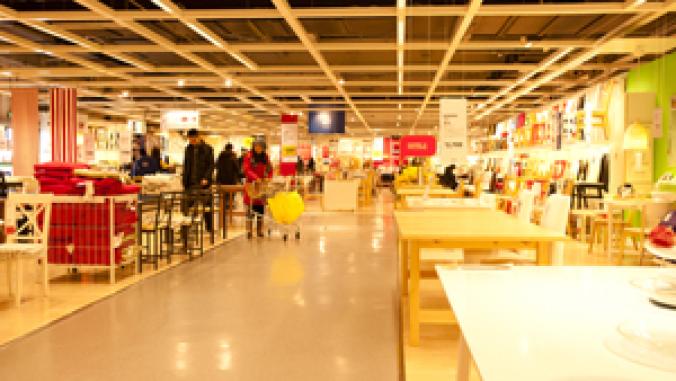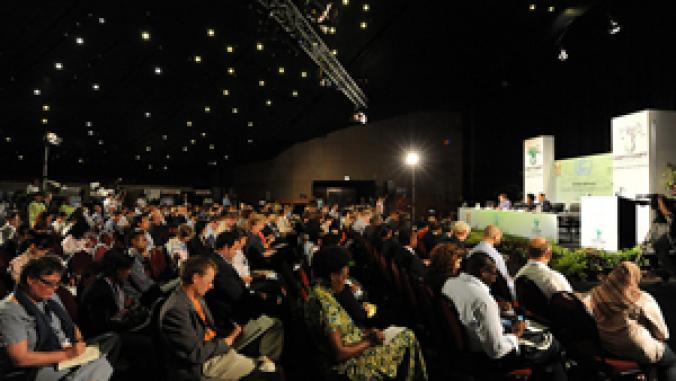The View from the C-Suite: Diversey's Ed Lonergan
<p>Diversey President & CEO Ed Lonergan talks about the Johnson family legacy of sustainability; innovations that save water, energy and labor; and how his team has reinvented his first summer job: waxing grocery store floors.</p>

Diversey, Inc. is one of the world's largest providers of industrial cleaning, sanitation and hygiene products. The company, formerly known as JohnsonDiversey, generates approximately $3.1 Billion in revenue and operates in 175 countries. (Diversey is a combination of the former Johnson Wax Professional business, once part of S.C. Johnson & Son, and DiverseyLever, formerly owned by Unilever.) The company's stated purpose is to "protect lives, preserve the environment and transform the industry."
Greenbiz.com's Heather King talks to President & CEO Ed Lonergan about the Johnson family legacy of sustainability, innovations that save water, energy and labor, and how his team has reinvented his first summer job: waxing grocery store floors.
Heather King: A recent P&G sponsored IPSOS report on the industrial cleaning market indicates that there is not yet strong customer interest in sustainability. What exactly is driving Diversey's commitment to develop "environmentally sound products?"
 Ed Lonergan: Our Johnson family heritage is a key driver to our sustainability commitment. In 1935, H.F. Johnson, the company's second generation President and CEO, recognized the importance of sustainable resources to his business. Back then, the company did not have a lasting supply of carnauba wax, a key ingredient in its floor finishing products, so he created one in Brazil. Before he started extracting the wax, he developed a sustainable process for capturing it as well as the infrastructure to ensure the longstanding viability of the adjacent community -- including schools, medical facilities, and agriculture. Diversey is a product of that heritage.
Ed Lonergan: Our Johnson family heritage is a key driver to our sustainability commitment. In 1935, H.F. Johnson, the company's second generation President and CEO, recognized the importance of sustainable resources to his business. Back then, the company did not have a lasting supply of carnauba wax, a key ingredient in its floor finishing products, so he created one in Brazil. Before he started extracting the wax, he developed a sustainable process for capturing it as well as the infrastructure to ensure the longstanding viability of the adjacent community -- including schools, medical facilities, and agriculture. Diversey is a product of that heritage.
Today, we actively choose to build on that legacy. Corporations can't ignore the realities of social, environmental, and economic shifts. We have to find a way to integrate sustainability into our business.
I'm not sure I agree with the IPSOS report. Although it fits with our understanding of the market, I learned from my years in the consumer goods business that one way retailers can win is to know what customers want before customers know they want it. I believe sustainability is one of those trends. If we can find ways to make our products more sustainable, and deliver the same or better value in the process, then customers will get on board.
HK: How is innovation playing into Diversey's sustainability strategy?
EL: As I talk to peers around the world, it's interesting to see where sustainability fits into various corporate cultures. At Diversey, it is who we are, and so, divorcing sustainable innovation from the broad innovation of the company is virtually impossible.
Since I've joined, we have stepped up our industry research. We are using deep market insights as fuel for our innovations. Some of our key questions in evaluating these innovations are:
Does it impact the amount of water used in the process of cleaning? Does it impact the amount of energy used? Does it change the amount of labor required? Does it change the effluence stream from the facility that uses that product? Does it transform the industry?
If the answers to these questions are "yes", then the innovation has a good shot of coming to life. I can't think of an innovation in the last four years that didn't improve sustainability in one way or another.
HK: What are your most significant "wins" on the sustainability front?
EL: We play in three major market segments: 1) food and beverage manufacturing, 2) plant hygiene and sanitation, and 3) kitchen and laundry management.
Food and beverage plants have historically used a lot of water and energy to clean and run the facilities. Some wins cannot be attributed to a single innovation, but rather the collective impact of many innovations over the course of years. For our beverage plant customers, we've introduced important innovations such as dry tack treatments in the lubrication of lines and moving from multi-step hot water sanitation to simpler cold-water processes. Now, we can walk into a plant and reduce water use by 30 percent, reduce energy use by 60 percent, and generate more production days.
In the building care market, we brought to market some of the first innovations in decades. As a kid, I worked in grocery stores. I remember putting wax on the floors and taking it off. When I joined this industry, the floor waxing process hadn't changed since I stopped doing it in the late '70s. The standard was still a Kentucky cotton mop and a bucket.
We determined that there had to be a better way. A year ago, we launched TrailBlazer, a platform device with wheels and a pump on it. You put the bag and box of wax on top. It dispenses wax as the platform is pulled. It spreads the wax evenly so there's no art (or risk) in putting it on the floor. It delivers a 90 percent reduction in labor and eliminates the waste wax that normally would be left over.
HK: Given Diversey's operations span 175 countries worldwide, do the different regions -- and their respective regulatory environments and cultural sensitivities -- present a significant challenge?
EL: In our experience, the world is flatter than we assume. Our various customers and plant properties expect similar standards of functionality and value.
The greater challenge is in changing mindsets. We must show our customers the value of adopting new approaches to cleaning. We must nurture our employee mindset toward sustainability and ensure this new mindset impacts what we bring to market.
We are learning from our partnership with World Wildlife Fund's Climate Savers. With their advice and a bounty of good ideas from our own people, we have upped our commitment to carbon reduction. We've committed to a 25 percent reduction in our greenhouse gas emissions by 2013 from our 2003 baseline. In addition, we have thousands of institutional customers worldwide. Ideally, we will fully eliminate our carbon footprint through the cumulative carbon reduction we drive through our customer base.
HK: What does the future look like for Diversey and how will you measure success?
EL: Sustainability brings risks and opportunities. In the past, we have been squarely planted in the chemical business -- a notoriously challenging business from an environmental standpoint. If we develop our business right, we will sell less chemicals. We will obsolete ourselves out of the chemical business by creating new products and revenue streams.
Our competitor Clorox launched Green Works -- a line of naturally derived laundry products. It is a compelling story, which resonates with consumers and is changing their business and our industry.
Diversey has already made significant strides on sustainability. Going forward, we will focus on being a leader in this movement. Not every customer will say they want the most sustainable products. But if we offer an opportunity to save water, waste, energy and labor with the same quality outcome, they will embrace it. That's our future. We will continue to make business decisions based on a broader view of the impact of our operations on the planet.
Heather King is a producer, writer, strategist and executive-in-residence. Her primary focus is on clean technology, corporate sustainability, and new media. She writes the "View from the C-Suite" column for GreenBiz.com.





